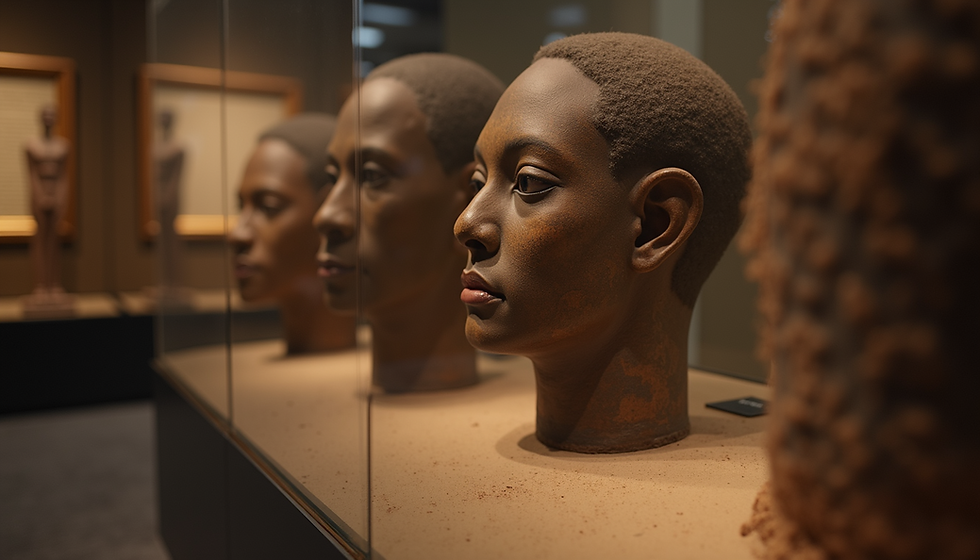The Healing Power of Art: How Creativity Can Be Therapeutic for Mental Health
- Keyanna Harper

- Apr 19, 2023
- 3 min read

Engaging in creative activities, such as art therapy, offers significant therapeutic effects on mental health by promoting self-awareness, empathy, and emotional regulation and reducing stress, anxiety, and depression.
Numerous studies and organizations support the benefits of art therapy for a wide range of mental health concerns, including schizophrenia, PTSD, anxiety, and depression, highlighting its potential to enhance psychological well-being and foster emotional resilience.
Art has long been recognized for its transformative and healing powers. In recent years, the field of art therapy has emerged as a powerful tool for promoting mental health and emotional well-being.
In this blog post, we'll explore how creative activities can significantly improve mental health and highlight some of the research and organizations supporting art therapy's benefits.
Harnessing the Power of Creativity:
Creativity lies at the core of the human experience, and engaging in artistic activities can result in fulfillment, self-discovery, happiness, and well-being. Creating art gives us access to our deepest thoughts and emotions, promoting self-awareness, empathy, and emotional regulation.
Creating can be a conscious experience, helping individuals achieve a state where they become completely absorbed in the present moment. This type of mindfulness can alleviate stress, anxiety, and symptoms of depression. Treatment can help with the flexibility of thought, which is correlated with cognitive flexibility and is necessary for divergent thinking.
Exploring Research on Art and Mental Health:
Many studies have illustrated art's positive influence on mental health. For example, a study revealed that a mere 45 minutes of creative activity could significantly decrease stress levels, independent of artistic experience or skill.
The British Journal of Psychiatry showed that art therapy helps mental health human services believe that engaging in art and creative processes is a form of. According to the therapy association, art therapy has gained recognition as a spiritual and mental support source.
Patients who engaged in art therapy experienced improvements in their daily functioning and quality of life compared to those who did not.
Art Therapy Studies and Mental Health:
The research into art therapy has demonstrated its potential to benefit individuals with a broad range of mental health concerns. The NIH concluded that art therapy could enhance your psychological well-being, positively affecting anxiety, depression, and emotional regulation.
A National Institutes of Health (NIH) article study found art therapy can be an effective treatment for post-traumatic stress disorder (PTSD); it can help with reducing symptoms and improving participants' quality of life.
Art Therapy Organizations Promoting Mental Health:
Here are a few organizations dedicated to advancing art therapy and raising awareness of its mental health benefits.
The American Art Therapy Association (AATA): This organization champions professional recognition for art therapists, offers resources for practitioners and students, and promotes research within the field.
Art Therapy Without Borders (ATWB): ATWB is an international nonprofit that brings art therapy to underserved populations, such as disaster relief efforts and regions with limited mental health resources.
The International Expressive Arts Therapy Association (IEATA): IEATA is a global network of expressive arts therapists, educators, and researchers that aims to promote the use of expressive arts for healing and personal growth.
The profound connection between art and mental health is increasingly apparent as research continues to reveal the therapeutic advantages of creativity. Engaging in artistic activities allows individuals to improve their psychological well-being, foster emotional resilience, and cultivate a sense of empowerment.
Whether you're seeking professional art therapy or simply exploring your creative passions, embracing the restorative power of art can have a lasting, positive impact on your mental health.
In My Opinion: Art therapy has always been a thing for most people who suffer from mental health issues or even just for well-being. As a person with ADHD and the has PTSD, writing is my art therapy. When Im not writing blogs and researching I write personal art as I listen to my favorite music. Art therapy is a great way to relieve stress and get your brain in a happy space.






Comments